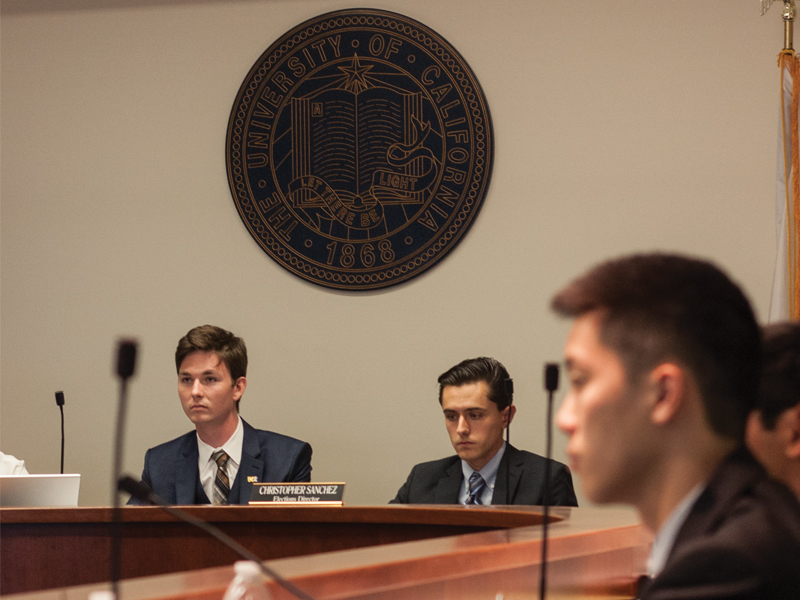
A senate resolution which calls for support of the Bangladesh Accord for Fire and Building Safety — an independent agreement designed to make safer working conditions for garment factories in Bangladesh — was unanimously passed by the ASUCR senate by a vote of 12-0; four senators were absent. The resolution demands the university and the entire UC system to encourage Bangladeshi licensees that produce collegiate apparel to sign the accord within 30 days or face termination of their contracts.
The resolution, which was drafted by United Students Against Sweatshops (USAS) representative Cynthia Chavez and Senators Nafi Karim and Michael Ervin, stems from public outcry over the 1,800 deaths that have occurred in Bangladesh factories since 2005. The deadliest among these was the Rana Plaza factory collapse on April 24, 2013, which caused the deaths of 1,132 garment workers.
After this incident, an agreement was signed between apparel brands and unions to make systemic changes to factory safety in Bangladesh under the accord, which also included increasing the amount of workers’ rights and compensation. While many of the licensees that produce collegiate apparel for UCR, such as Fruit of the Loom, Zephyr Graf and Adidas have signed the accord, VF Corporation and 10 others have not.
VF Corporation, which is the parent company of VF Imagewear and Jansport, has instead partnered with Wal-Mart and the Gap to create a 27-member corporate program called the “Alliance for Workers Safety.” The organization has been critiqued by worker rights advocates and labor groups including the American Federation of Labor and Congress of Industrial Organizations (AFL-CIO) for failing to require brands to repair and renovate unsafe factories.
As many of these are popular brands, the USAS representatives urged the audience to take note of the brands they are wearing to consider if their clothes were made within safe working conditions. “I want you guys to acknowledge the tags on the back of your shirts, and to consider where your clothes are being produced,” Johnson Pham, a first-year linguistics major, stated.
The resolution also sought to pressure brands into signing the accord and thus help end unfair labor practices. “UCR is one of the campuses that profits off of labor exploitation, and I feel that needs to change,” stated first-year political science major Arturo Gomez during his presentation with USAS.
“We as students need to make sure that these workers don’t have a workplace in which they create a sweatshirt which is sold for $30 or $40 (and) that they spend their entire lives making just $2 to $10 a week,” fourth-year political science major Cynthia Chavez stated.
According to the ASUCR resolution, New York University, Penn State University, Duke and 18 other universities have signed similar resolutions acknowledging the accord. Karim made a motion to amend the resolution to require the corporations to sign the accord from 90 to 30 days to increase pressure on the companies.
Newly elected Vice President of Campus Internal Affairs Fernando Echeverria mentioned that these conditions may affect certain students’ personal lives as well. “I agree with USAS. Many of the problems here are not that far away from (students’) home (and) I think it’s important to take those narratives into account when we’re passing these legislations; it is affecting lots of students every time you put on a UCR sweater,” Fernando stated.








